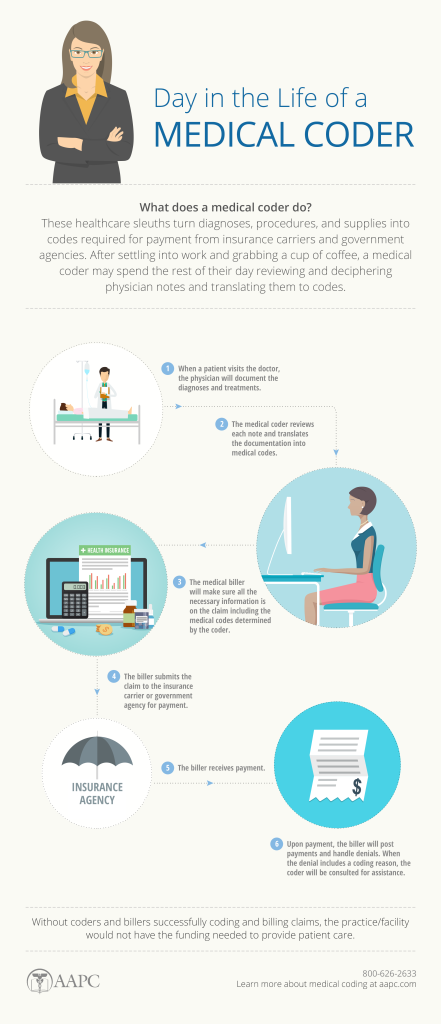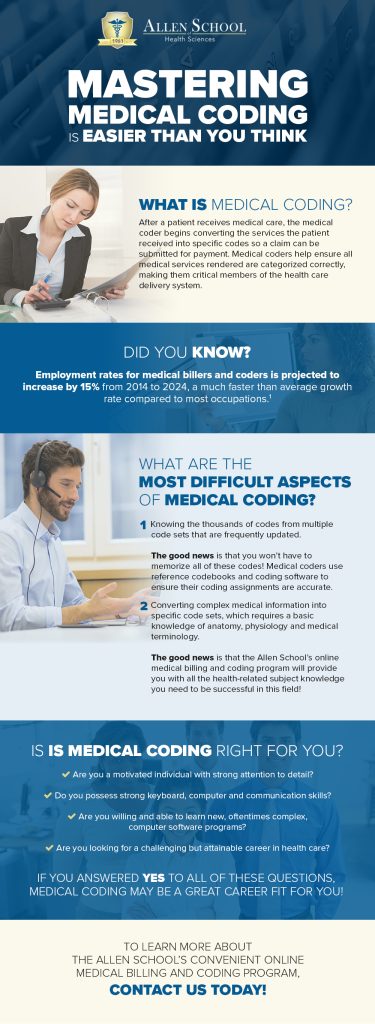In this article, you will learn about the skills and attributes required to become a successful medical coder. We will explore the importance of attention to detail and accuracy in coding medical records, as well as the need for strong analytical and problem-solving abilities. Additionally, we will discuss the significance of staying current with industry regulations and guidelines, and the role of effective communication in this profession. By the end of this article, you will have a clear understanding of the qualities that make a medical coder successful.

Education and Training
To embark on a career as a medical coder, it is essential to obtain a high school diploma or equivalent. This serves as a basic educational requirement for most medical coding training programs. Once you have met this requirement, the next step is to complete a medical coding training program. These programs are offered by various educational institutions and can range from several months to a year in duration.
During the medical coding training program, you will learn the necessary skills and knowledge to excel in this field. One of the key aspects of this training is developing a deep understanding of medical terminology and coding systems. This knowledge will enable you to accurately translate medical documentation into codes for billing and reimbursement purposes.
Knowledge of Medical Terminology and Coding Systems
Medical coders need to have a comprehensive understanding of anatomy and physiology to accurately assign codes. This knowledge is crucial in order to correctly identify the diagnoses and procedures mentioned in patient medical records. In addition to understanding anatomy and physiology, medical coders must also become proficient in using the ICD-10 and CPT coding systems.
The International Classification of Diseases, Tenth Revision (ICD-10) coding system is used to accurately classify and code diagnoses and procedures. The Current Procedural Terminology (CPT) coding system, on the other hand, is used to record medical procedures performed by healthcare providers. It is important for medical coders to continuously stay updated on any changes or updates to these coding systems and guidelines.
Attention to Detail
Attention to detail is a crucial skill for a successful medical coder. Medical coders are responsible for thoroughly reviewing patient medical records to ensure accuracy and completeness. They must carefully analyze the information provided within the records and extract the relevant data for coding purposes.
Precisely assigning the correct codes is another important aspect of attention to detail. Medical coders need to have a keen eye for detail to correctly interpret the medical documentation and apply the appropriate codes. Any errors or omissions in coding can have significant consequences, including rejected insurance claims, inaccurate billing, and potential legal issues.
Analytical and Critical Thinking Skills
Another key skill required for success in medical coding is analytical and critical thinking. Medical coders need to be able to identify the relevant information within patient medical records and apply the appropriate coding rules and guidelines. This requires the ability to analyze complex medical documentation and make accurate coding decisions based on the information provided.
Medical coders may also encounter coding challenges that require critical thinking skills to resolve. These challenges may involve ambiguous or conflicting information within patient records or coding guidelines. Being able to think critically and problem-solve in such situations is essential for a successful medical coder.

Technology and Computer Proficiency
In today’s digital age, proficiency in technology and computer usage is essential for medical coders. Medical coders need to be adept at utilizing electronic health record (EHR) systems, which are used to store and manage patient information. They must also be familiar with coding software and tools that facilitate the coding process.
Being able to navigate these software and tools efficiently is critical to the productivity and accuracy of medical coders. Additionally, medical coders should also possess troubleshooting skills to address any technical issues that may arise during the coding process.
Ethics and Confidentiality
Ethics and confidentiality are paramount in the field of medical coding. Medical coders have access to sensitive patient information, and it is their responsibility to maintain patient privacy and confidentiality at all times. They must adhere to professional codes of conduct and ensure that patient information is handled with utmost care and discretion.
Medical coders must be aware of the legal and ethical implications related to the use and disclosure of medical information. They should consistently demonstrate integrity and professionalism in their work and protect patient confidentiality to the highest degree.
Time Management and Organization

Time management and organization skills are crucial for medical coders, as they often work with strict deadlines and manage large volumes of coding workloads. Medical coders need to effectively prioritize tasks and assignments to ensure that they are completed in a timely manner.
Maintaining orderliness of coding files and documentation is also essential to simplify the coding process. This includes organizing and categorizing patient records, coding guidelines, and other relevant materials in a systematic manner. By practicing good time management and organization, medical coders can effectively meet deadlines and maintain efficiency in their work.
Effective Communication Skills
Effective communication is vital for medical coders to collaborate with healthcare providers and staff. Coders may need to clarify coding-related queries and issues with physicians and other healthcare professionals. They must be able to effectively communicate the rationale behind their coding decisions and address any concerns or discrepancies that may arise.
Furthermore, medical coders may be required to present coding results and findings to various stakeholders within healthcare organizations. Strong communication skills are necessary to convey this information accurately and comprehensively.
Continuous Learning and Professional Development
The field of medical coding is constantly evolving, and it is essential for medical coders to embrace continuous learning and professional development. Attending coding workshops and seminars can provide opportunities to stay updated on the latest coding guidelines, changes, and industry trends.
Engaging in online courses and trainings can also enhance the knowledge and skills of medical coders. These resources allow coders to continue their education and expand their expertise in specific areas of medical coding.
Pursuing advanced certifications can further boost the career prospects of medical coders and demonstrate their commitment to professional growth. Advanced certifications indicate a higher level of expertise and can open doors to more specialized and rewarding opportunities within the field.
Conclusion
In conclusion, becoming a successful medical coder requires a combination of education, training, and relevant skills. A strong foundation in medical terminology and coding systems is essential, as is attention to detail and analytical thinking. Proficiency in technology and computer usage, along with ethics and confidentiality, is also crucial. Effective time management, organization, and communication skills contribute to success in this field. Additionally, embracing continuous learning and professional development is crucial to staying updated in the ever-evolving medical coding industry. By acquiring and honing these skills, you can set yourself on the path to a successful career as a medical coder.
